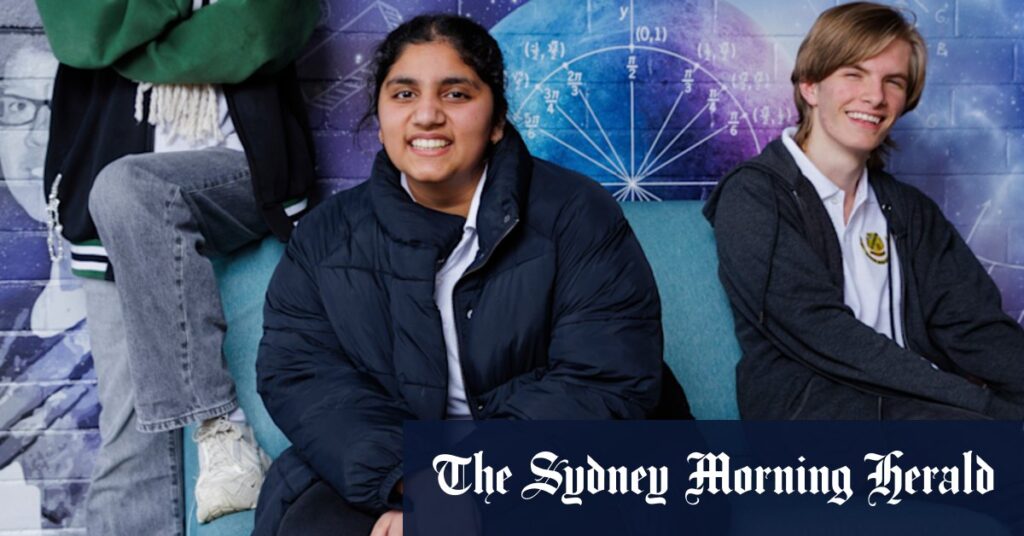“Students know scaling works best on English Advanced. So they have chosen what they think will get them the best result.”
Loading
UNSW School of Education research associate Dr Robin Nagy said there were more humanities subjects available for high achievers, whereas those skilled in STEM converged on this combination.
“I would guess that there are probably a much higher proportion of boys than girls in this group and that English is typically their weakest subject, but is mandatory,” he said.
2024 North Sydney Boys High graduate Bowen Wu studied this combination, plus English Extension 1. It paid off: Wu received a 99.95 ATAR and is now studying medicine.
At his school, which placed first in the Herald’s HSC rankings last year, those five units were “probably the most popular combination”, he said.
Wu remembers picking up an HSC physics textbook in year 8, and extension English was a last-minute addition. Essays provided a welcome opportunity to use a different part of his brain, he said.
Dhall said the tutoring industry “absolutely takes advantage” of the popularity of chemistry, physics and four-unit maths among dedicated students, providing hours of coaching programs. His personal view is that the combination is “a bit reductive”.
“Students who want to go into medicine or law would benefit from having more exposure to the humanities,” he said.
St Mary’s Senior High Mathematics Extension 2 teacher Reuben De Rooy said some students chose the subject “because they think it will help them out with their ATAR”. However, even studious students struggle if they don’t enjoy it, and classes often “whittle down” throughout the year.
While they were the most popular combination, individually, these difficult subjects have low enrolments: last year, 3500 students took Mathematics Extension 2, compared to 16,500 for Mathematics Advanced. More than 19,000 took biology, while 9700 studied chemistry and 8200 took physics.
Catholic Schools NSW says HSC merit lists – of students scoring above 90 – drive declining enrolments in harder subjects, such as physics and chemistry.
In contrast, the second-most common combination last year was English Standard and Mathematics Standard 2, with the next three most popular subjects, biology, Business Studies and PDHPE.
At St Mary’s Senior High, four current Year 12 students have these subjects, including Maiara Cheah, a keen sportswoman who wants to work in allied health.
“I chose biology because it’s a good prerequisite for unis,” she said.
From left: Albert Joseph, Rielly Broome, Maiara Cheah, and Reniel Guzman are all studying PDHPE, biology and business studies alongside English and mathematics.Credit: Max Mason-Hubers
Albert Joseph is considering a similar career – “probably physiotherapy” – as is classmate Rielly Broome, who said studying business will serve him well if he starts his own.
Reniel Guzman knew he would need to take biology to study nursing, and liked PDHPE. “Business and math, they’re kind of filler subjects for me,” he admitted.
These subjects dominated the most popular combinations.
Loading
University of Canberra education researcher Professor Philip Roberts said the range of subjects meant the most popular combinations were only selected by less than 3 per cent of the cohort.
Biology may be popular because students think they can get better grades than in physics or chemistry while still studying science, he said. Meanwhile, PDHPE and business studies are both perceived as “useful” for various careers.
Subject choices can be more limited by resources at smaller schools.
“Biology has more trained teachers, in the science area,” Roberts said, adding that, while economics is considered “more specialised”, junior HSIE teachers can teach Business Studies.
The Morning Edition newsletter is our guide to the day’s most important and interesting stories, analysis and insights. Sign up here.
Read the full article here

